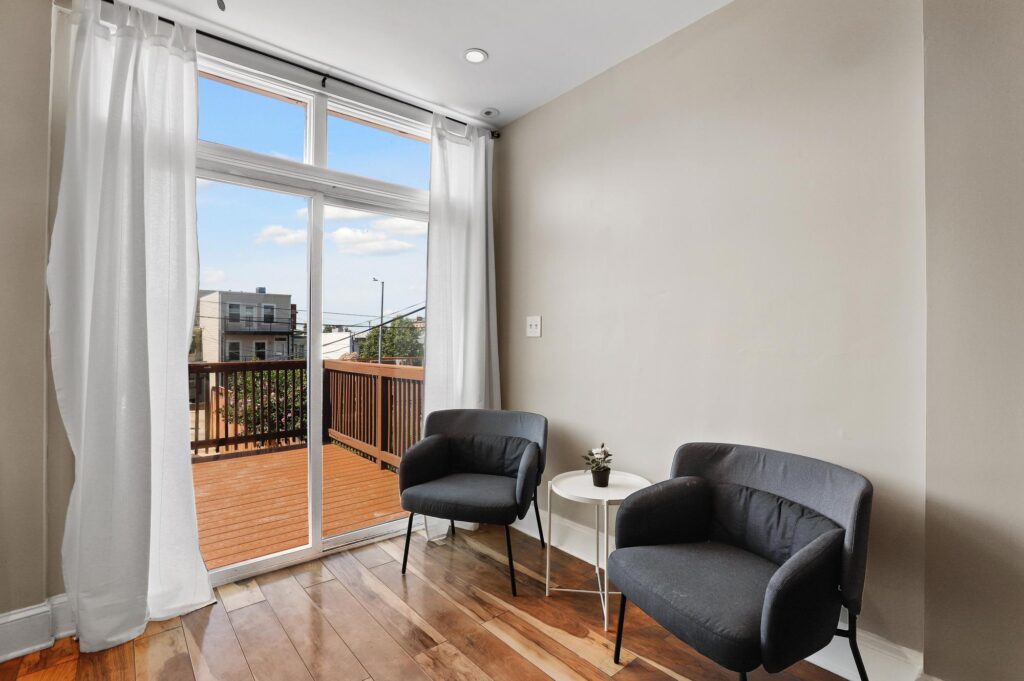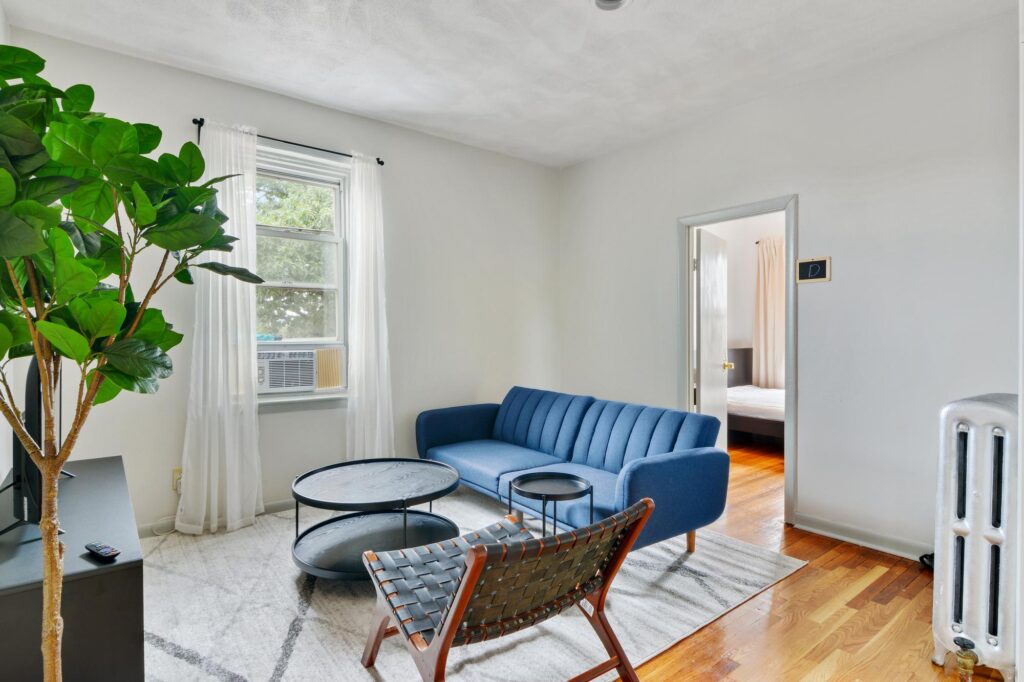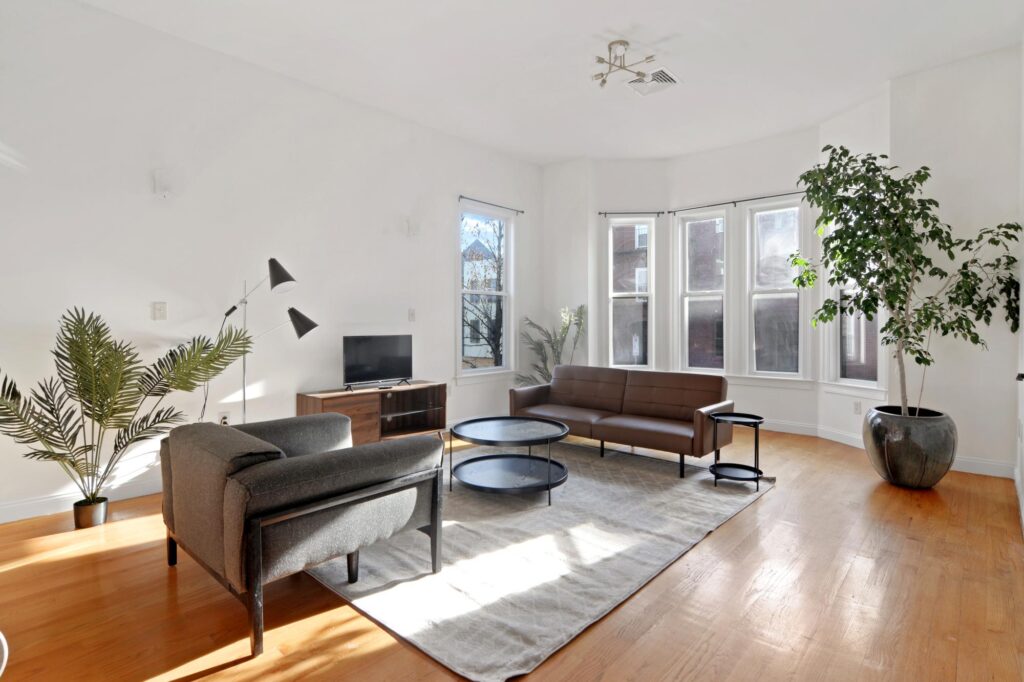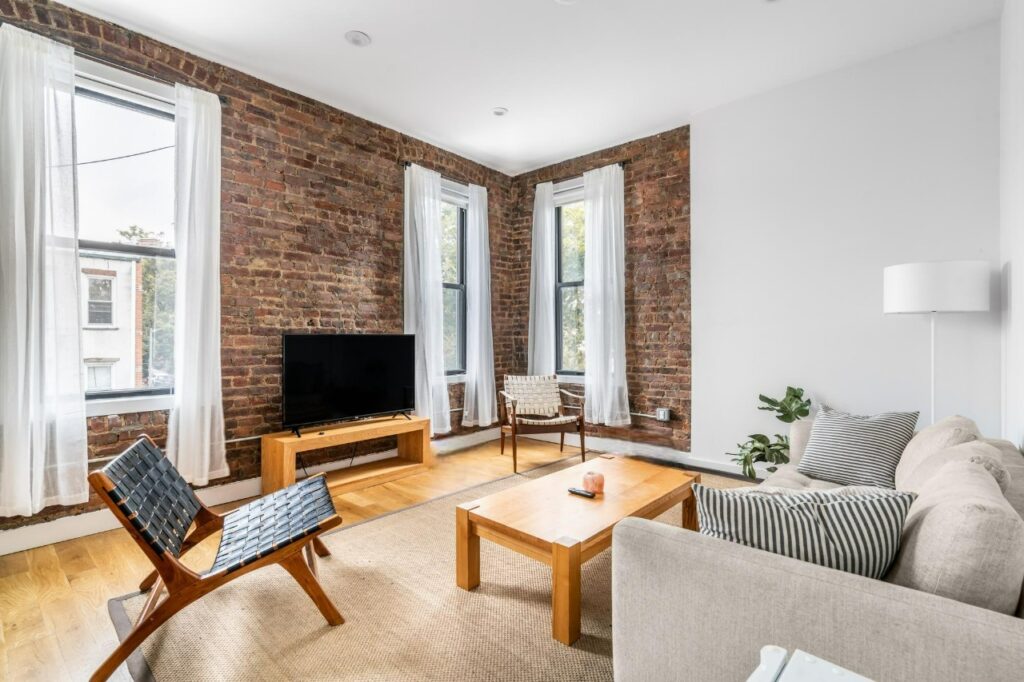Buy vs. Rent Calculator
Calculate whether renting or buying is the better financial choice for you.
📊 How This Calculator Works
This calculator compares the direct costs of buying versus renting, including equity building.
What’s included in the calculation:
- For Buying: Mortgage payments, property taxes, insurance, maintenance, and home appreciation
- For Renting: Monthly rent payments and annual rent increases
What’s NOT included:
- Opportunity cost of the down payment
- Investment returns on savings
- Transaction costs (closing costs, realtor fees)
- Tax deductions and benefits
Instructions: Adjust the inputs below to match your situation, then click “Calculate” to see the results.
Note: This calculator provides financial estimates to help you compare renting vs. buying. Remember that the best decision depends on many factors beyond just financial considerations, including lifestyle preferences, emotional needs, and personal goals.
Here’s What Else We’ll Cover:
- Understanding Rent vs. Buy
- The Hidden Costs Nobody Talks About
- When the Math Clearly Favors Renting
- When the Math Clearly Favors Buying
- How to Actually Make This Decision
- Additional Resources
Understanding Rent vs. Buy: Why This Decision Is More Complex Than It Seems
The rent versus buy decision is one of the most significant financial choices you’ll make, and there’s no universal right answer. Despite what you might hear from real estate agents, financial advisors, or well-meaning relatives, the math and circumstances vary dramatically based on your situation, market, and timeline.
The Core Financial Trade-Off
At its simplest, the rent vs. buy decision comes down to this:
Renting gives you flexibility and predictability. You know your maximum housing cost each month. When something breaks, it’s not your problem financially. You can move relatively easily. Your capital isn’t tied up in one illiquid asset.
Buying gives you the potential to build equity and benefit from appreciation. You get stability and control over your living space. Your housing costs become partially fixed. You’re making a leveraged bet on one local real estate market.
Neither is inherently superior—they’re different financial strategies with different risk profiles and benefits.
What Leverage Actually Means (And Why It Matters)
One of the most misunderstood aspects of homeownership is leverage. When you put 20% down on a $500,000 home, you control an asset worth $500,000 with $100,000 of your own money. If that home appreciates 5%, you gain $25,000—a 25% return on your actual investment.
This sounds great, but leverage cuts both ways. If the home depreciates 5%, you’ve lost 25% of your down payment. And unlike stocks, you can’t easily diversify this risk—you own one property in one location.
Meanwhile, as a renter, you could invest that $100,000 in a diversified portfolio. Historically, the stock market has returned about 10% annually (7% after inflation). Your $100,000 could grow to $161,000 in five years at 10% returns, compared to the $125,000 gain from home appreciation.
But here’s the complication: You still need to pay rent, which reduces what you can actually invest. This is where the math gets messy and personal circumstances dominate.
The Hidden Costs Nobody Talks About
For Homeowners:
- Property taxes (1-2% of home value annually, varies by location)
- Insurance (rising dramatically in many markets)
- Maintenance and repairs (experts suggest budgeting 1-2% of home value annually, though reality varies wildly)
- HOA fees (if applicable)
- Opportunity cost of down payment
- Transaction costs when buying (2-5%) and selling (5-6%)
- Time and stress of dealing with repairs and maintenance
For Renters:
- Annual rent increases (often 3-5%, sometimes much more)
- No equity building
- Less stability (lease non-renewals, property sales)
- Limitations on customization
- Potential difficulty renting in retirement on fixed income
- Moving costs if forced to relocate
Both paths have substantial costs that are easy to overlook or underestimate.
Enjoy a hassle-free, high-end rental experience for stays of one month or longer in major US cities.

Fully-furnished rooms and apartments with flexible lease. Apply today and move in tomorrow.
When the Math Clearly Favors Renting
Despite cultural pressure to own, there are scenarios where renting is objectively smarter:
Short time horizons: If you’ll move within 3-5 years, transaction costs typically make buying a losing proposition. You’ll pay 8-10% in total transaction costs, which takes years of appreciation to overcome.
Extreme price-to-rent ratios: In some markets, comparable properties cost 2-3x more to own than rent. This often indicates an overheated market where renting provides better value.
High-interest-rate environments with expected rate drops: Buying at 7% when rates might drop to 4% means either being stuck with high payments or paying refinancing costs later.
Career or life uncertainty: If you might relocate for work, aren’t sure about the area, or expect major life changes, the flexibility of renting has real value.
Ability and discipline to invest: If you genuinely will invest the difference between renting and buying costs (and historically, most people don’t), you might come out ahead with a diversified portfolio.
Related Tools to Help You Calculate Rent
- Hourly Pay to Rent Calculator
- Monthly Room Rent Calculator
- NYC Rent Calculator
- How Much Do You Need to Make to Afford Rent?
- 3x Rent Calculator
- Prorated Rent Calculator
- Renting an Apartment With No Income but Savings Calculator
- How to Split Rent Fairly — Rent Split Calculators
When the Math Clearly Favors Buying
Long time horizons: The longer you stay, the more transaction costs get amortized and appreciation compounds. At 10+ years, buying typically wins if appreciation is positive.
Reasonable price-to-rent ratios: If monthly ownership costs are comparable to rent, building equity while paying similar amounts is usually advantageous.
Stable life situation: If you’re committed to an area for career, family, or personal reasons, ownership provides both financial and non-financial benefits.
Markets with strong fundamentals: Areas with job growth, limited housing supply, and good schools tend to appreciate consistently.
Lower interest rates: When rates are below expected inflation (3-4%), you’re essentially borrowing money for free in real terms.

The Intangible Factors That Actually Matter
Financial calculators can’t measure:
Stability and control: Not wondering if your landlord will sell or decline to renew your lease. Not waiting weeks for maintenance requests. Complete privacy in your own home.
Customization freedom: Painting walls, renovating, installing fixtures—all without permission. This has genuine quality-of-life value that’s hard to quantify.
Behavioral economics: Most people don’t actually invest the rent-vs-buy difference. A mortgage acts as forced savings, which for many people is the only way they’ll build wealth.
Retirement security: At 65, would you rather have a paid-off home or still be paying market-rate rent on a fixed income? This question terrifies many people, and rightfully so.
Community and roots: Long-term homeownership often leads to deeper community connections, better schools for kids, and a sense of permanence.
Pride of ownership: This is real for many people, even if financial advisors dismiss it as emotional.
But these factors work in reverse too:
Freedom and flexibility: Not being tied to one location opens career and life opportunities that might be more valuable than equity.
Simplicity: Not dealing with repairs, yard work, or property management has real quality-of-life value.
Liquidity: Your investment portfolio can be accessed in emergencies; home equity cannot (easily).
The Reality Most People Face
Here’s what actually happens in practice:
- Most people who rent don’t invest the difference consistently. Life happens, lifestyle creeps, and that theoretical investment account stays theoretical.
- Most people who buy don’t account for all ownership costs accurately. That “1% maintenance” budget gets blown away by one roof replacement or HVAC failure.
- Most people make this decision based more on life stage and cultural expectations than rigorous financial analysis.
And that’s okay. This isn’t just a financial decision—it’s a lifestyle decision intertwined with your career, family, values, and psychology.
How to Actually Make This Decision
- Run the numbers honestly using a comprehensive calculator (like this one or the New York Times version). Don’t cherry-pick optimistic assumptions.
- Factor in your real timeline. Be honest about how long you’ll likely stay. Life happens, but base decisions on realistic expectations.
- Assess your market. Research local price-to-rent ratios, historical appreciation, and market fundamentals. Some markets genuinely favor one option over the other.
- Know yourself. Will you actually invest the difference? Do you have the time and inclination for homeownership responsibilities? How much do you value stability vs. flexibility?
- Consider your life stage. A 28-year-old in a new career has different needs than a 45-year-old with school-age children.
- Build in buffers. Can you afford the home if one income disappears? If you get an unexpected $10,000 repair? If appreciation is flat for five years?
- Ignore cultural pressure (!). Homeownership isn’t a requirement for a successful life. Neither is being a permanent renter. Choose based on your circumstances, not others’ expectations.
The Uncomfortable Truth
After reading Reddit discussions and analyzing countless calculators, here’s what emerges: In many expensive markets right now, with elevated home prices and moderate-to-high interest rates, the pure financial math often favors renting for time horizons under 10-15 years.
This makes people uncomfortable because it contradicts decades of “homeownership builds wealth” messaging. But markets change. The conditions that made homeownership a slam-dunk investment for previous generations don’t necessarily apply today in all markets.
That doesn’t mean buying is wrong—it means the decision is more nuanced than conventional wisdom suggests.
Your Decision
Use this calculator to understand your specific numbers. But remember that it’s making assumptions about future appreciation, rent increases, investment returns, and maintenance costs that may or may not materialize.
The “right” answer depends on:
- Your local market conditions
- Your timeline and career trajectory
- Your financial discipline and risk tolerance
- Your personal values around stability vs. flexibility
- Your life stage and family situation
- Your ability to handle financial surprises
There’s no shame in renting if it’s the smarter choice for your situation. There’s also no shame in buying even if the calculator suggests renting might be slightly better financially—the non-financial factors matter too.
The worst decision is making this choice based on what you “should” do rather than what actually makes sense for your life and circumstances.
Final Words
Before Deciding:
- Research price-to-rent ratios in your specific market
- Get pre-approved to understand real borrowing costs
- Talk to people who’ve made both choices in your area
- Consider speaking with a fee-only financial advisor (not someone who profits from selling you a house)
Remember: This is one of the biggest financial decisions you’ll make (no pressure, haha), but it’s not irreversible. People buy homes and sell them. People rent for decades successfully. Give yourself permission to make the choice that fits your actual life, not some theoretical ideal.




